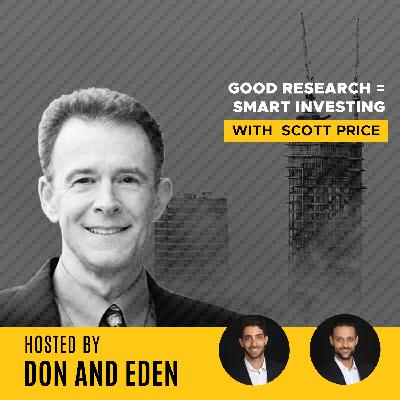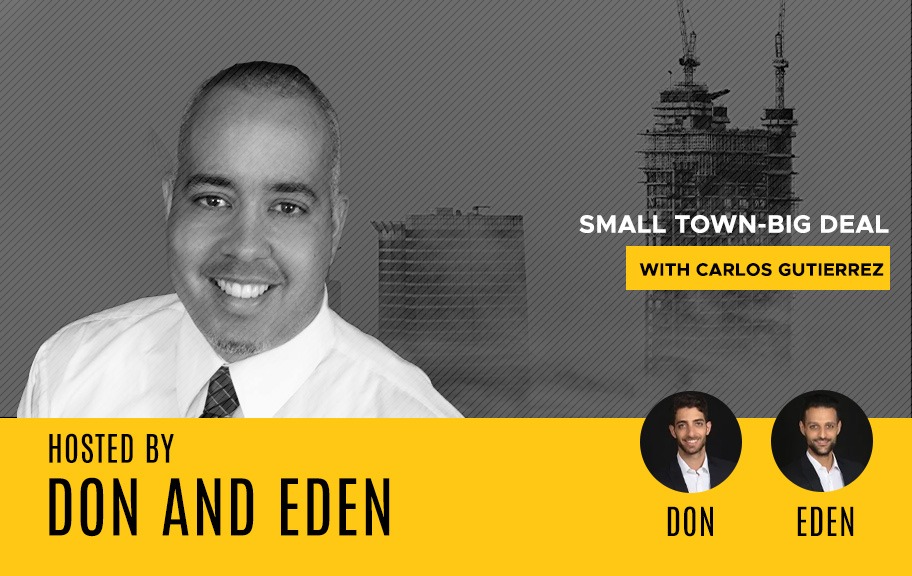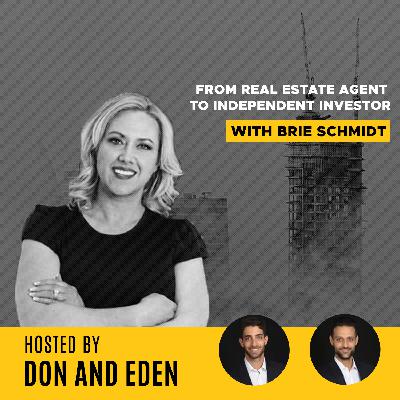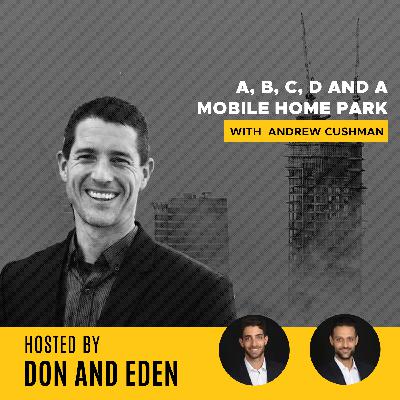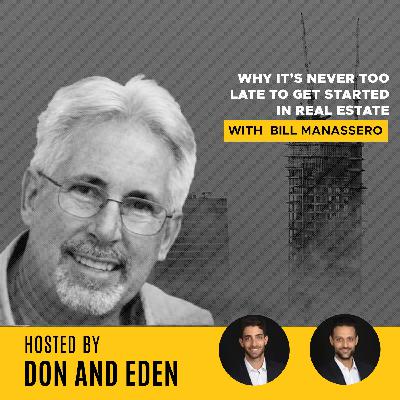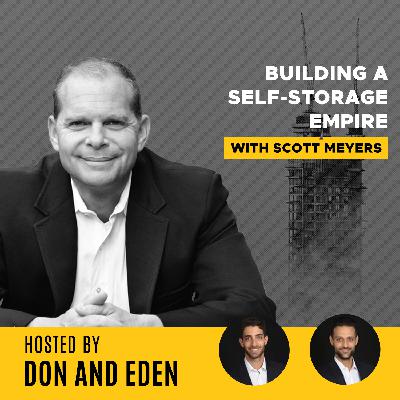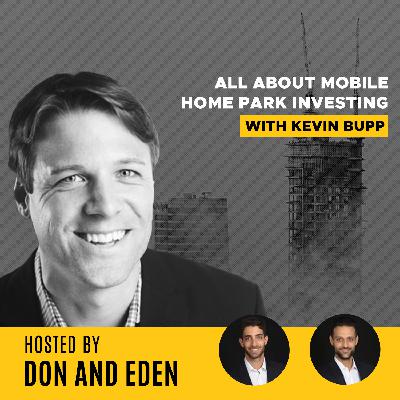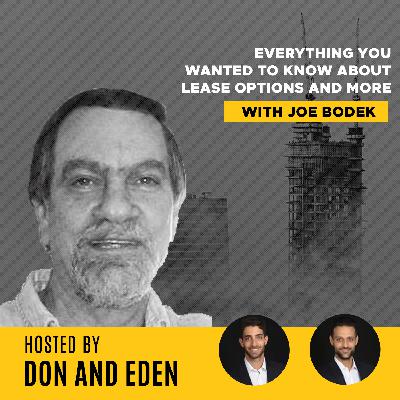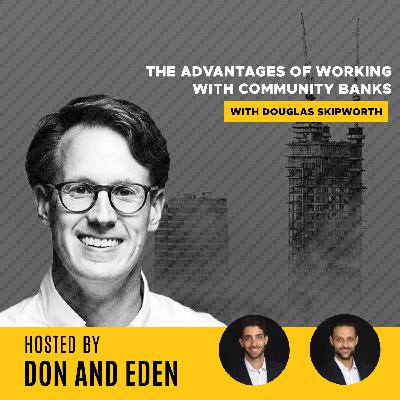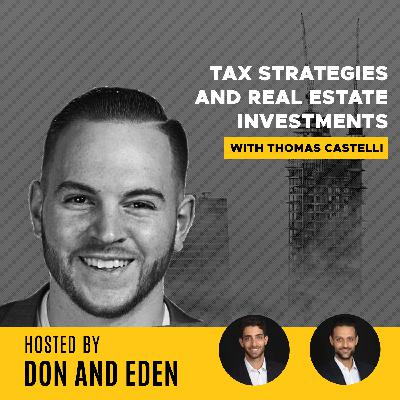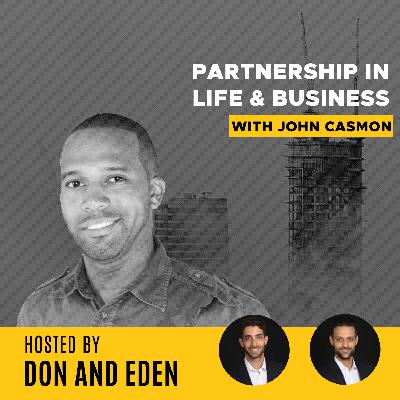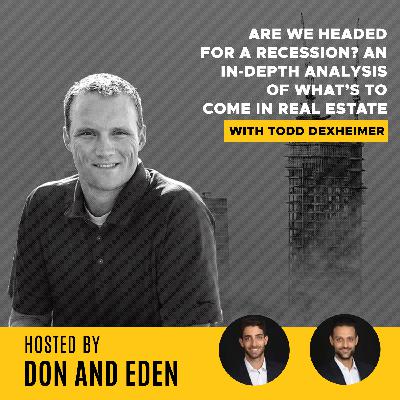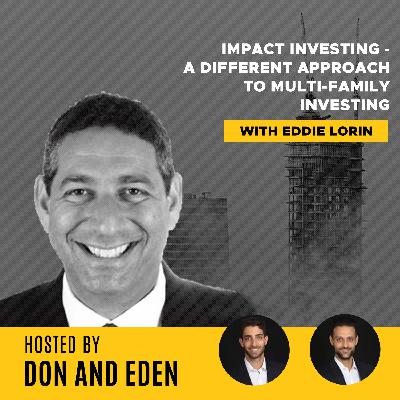DE 37: Good Research = Smart Investing with Scott Price
Description
DE 37: Good Research = Smart Investing with Scott Price
Today’s guest has sharpened his skill sets through key roles in various companies as a team manager, program manager, and marketing manager- Scott Price. In 2005, he purchased his first apartment complex of 29 units. He used the full‐time broker status to immerse himself in real‐world real estate, investing and applied education. After being approached by some people, Scott began to provide professional coaching for aspiring real estate investors.
In this episode, Scott shares with us the details of his first deal- what he learned and what he’d do differently, how he managed a full-time W2 job & real estate investing on the weekends, how he became financially free and his current deals.
Episode Highlights:
- Real Estate Beginnings
- Scott’s Retirement Plan
- Advantages of Real Estate
- A Memorable Deal
- 1:1 Coaching
Connect with Scott:
Website: bonvolo.com
- - - - - - - - - - - - - - - - - - - - - - - - - - - - - - - - - - - -
TRANSCRIPTION
Intro: Hey guys, welcome to the show. Today, I'm very excited to host Scott Price. Scott is a real estate investor. He's also a hard money lender. He's an active investor. He's a passive investor. And he's also a coach. Now, if you're asking yourself, how is it possible that you can do all these things, then I guess it's just a type of business that real estate is. It's just being diverse, being able to think long term. I think what I like about Scott is his long term vision. And that is a key feature that you got to have. It's something in your mindset, you got to understand that real estate is a long play. So, you got to be patient, and you got to keep working, you gotta keep grinding, and you have your way of doing this. So, Scott's way of doing this is working a W2 job as he's investing in real estate. That's a safe way and that's a very nice way to do things. So yeah, I think Scott has a lot of value to give. So, without further ado, let's get started.
Lady: Welcome to the commercial real estate investing podcast with Don and Eden where we cover all aspects of real estate investing with special attention to off-market strategies.
Don: Hey, Scott, welcome to the show.
Scott: Hey, Don, thanks. I'm looking forward to being here and talking to you.
Don: Yes, I'm also looking forward to having you here because I know this interview was rescheduled so many times just out of coincidence, and I really wanted to have you on the show. I think what you're doing is truly phenomenal. And I know you've been listening to the show also, as well. So, you've been there on the side of the audience and listener and also now as somebody who's being interviewed, so I'm very happy to have you here. And yeah, let's get started. Tell us a little bit about your career, your real estate career and how you got started in real estate.
Scott: Sure. I would say it first started many years ago, was looking at what am I going to do with my life and how am I going to become independent in terms of financial lifestyle and not dependent upon the winds of a company. And even going back to before college, I was thinking those kinds of things, certainly did during college as well and I kind of started on the usual approach of most people who have got a good job, go to a good school and things like that. But from all the research that I did, the thing that kept coming up over and over again was that people who maybe we're not household names, but they were people who developed a combination of recurring income as well as net worth. It kept coming back to real estate that some people would win the lottery by great IPO or their stock or something like that but it tended to be a smaller percentage, and it was a real roll of the dice as to whether or not you happen to be in the right company or not, or things like that.
I didn't want my life to be a chance, I wanted to be something that I could control and expand on. And to me real estate was that thing after looking at a lot of different options because it is doable, it's something you have to work out but at the same time, if you are diligent about it, get educated and don't rely on excuses but take action, it is something that can get you there both in terms of recurring income and net worth. What I did was I worked a regular W2 job primarily in high tech and usually in program management and team management positions. And at the same time, in the evenings and weekends, I was working on real estate. For one time back in 2005, I was a full-time real estate broker, but I just did that for a few years and was just to get into real estate investing to immerse myself. I still have my license right now, but I don't represent clients. I currently have it purely for investing purposes.
Don: So, you started back in 2005 right, and then you quit for a few years. I guess you quit because of the crisis?
Scott: I'm giving an approximate from 2003 to 2007. I was a full-time broker and I primarily got out of it because I was doing some commercial, which interested me, but I was doing mostly residential. And frankly, I got kind of tired of all the tire kickers. It's such a numbers game kind of job, some people love it. And that's all great. But I want to get paid for my efforts and for the clients I had, who were good to work with. But the people who would waste my time driving around for six months and then decided not to buy it got a little old.
Don: Yeah.
Scott: So, I decided to go back to W2 actually to work for good companies, good jobs and make a good income with that and not have to worry about all that kind of stuff. But at the same time on the side, again, in the evenings and weekends, I was actively working on my real estate investing. And my general approach was, all of my expenses for me and my family were taken care of by my job, as well as the benefits that I got and the ability to say It's a lot easier, especially for smaller loans to get a loan, if you have a W2 then if you don't if you're self-employed, things like that. So, I use that all to my advantage. I was very strategic and intentional about that. And by doing that, then all of my income, as well as profits from building up equity, doing a cash-out refinance, things like that, as I went along, I could directly roll that back into more real estate.
Again, it was part of a larger plan of not going to work W2 forever, didn't want to do that. But I was using the W2 job as a way to help me expand my real estate portfolio even more. And everything that I own right now is I own myself or myself and the bank, as they say, if I've got a loan on it, but had a need for co-investors, although I have worked with debt investors, and so that allowed me to build up a portfolio. I stayed with it for quite a long time until a couple of years ago. And then I got well past where I needed to be, but I wanted to be again very conservative. And then I had both income and net worth enough to just say, Okay, I'm going full time. So, I did that a couple of years ago.
Don: Okay, so yeah, that's very interesting. So, you decided to go full time two years ago, right or a couple of years ago, excuse me for asking it so bluntly, but how old are you?
Scott: I am 52.
Don: 52. So most people would retire when they are 64. And what I like about what you're doing, is the fact that you saw real estate as a long term investment for your life, for the way that you vision your life, right? So, you wanted to take all the money that you make from your W2, your good paying job, I know you were doing a high tech and you did team management for big companies. And so, you got paid well, I assume. And then you got that money and you paid the bill with that money, but the equity that you generated to real estate investing that you just rolled on, and that's how you got bigger and bigger and bigger.
And by the age of 52, you are financially free, which is a lot sooner than most people, I mean, you went down the road of the safer option, because I see a lot of people that are doing this, that they have a good-paying job but they know that they don't want to do this forever, and they want to retire earlier than most people. And so, they take the money and they live with it. And the money they make in real estate, they don't take anything out, you just push it back into the business, whereas a real estate investor, you have to also take money outside of your business so that you could live and pay your bills. Right?
Scott: Absolutely. And, of course, actually did two years ago, so that was at 50. And then on top of that, I could have easily done it earlier. Just to be clear. I mean, I've been building enough that easily five years earlier, and that if I wanted to, I could have done that 45 or probably earlier. So, it was just a matter of saying well, I want to be even more comfortable. In other words, I want to have a little bit more properties, I want to have a little more income coming in and things like that. And then finally got to the point where I felt comfortable enough with it.
Don: There's another thing that I want to talk about from something that you mentioned at the beginning. You said that you noticed that it all leads up to the real estate. It doesn't matter who you are, what you do. At the end of the day, the majority of them are in real estate. And the quest

